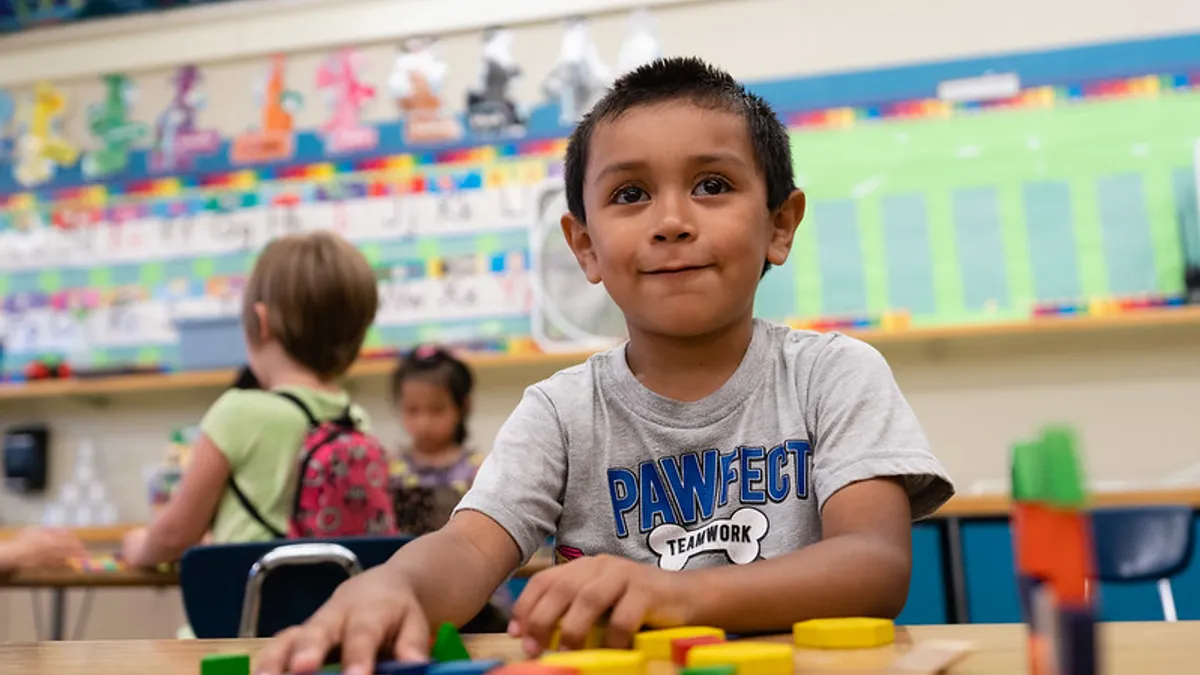Dive Brief:
-
A majority of schools continued to offer some type of summer programming, including academically focused programs, three years after the pandemic first shut down school buildings and triggered steep academic declines, according to a recent survey released last week by the U.S. Department of Education’s National Center for Education Statistics.
-
Just over 80% of public schools offered summer school programs in 2023, according to NCES data. A similar portion (78%) offered academically focused summer programs, NCES found.
-
However, 15% of all public students participated in academically oriented summer programs nationwide. Still, about three-quarters of public schools offering academic-centric summer programs enrolled most or all students who needed or wanted to participate in 2023, NCES said.
Dive Insight:
Around this time last year, 70% of schools said they offered summer school in summer 2022, according to results from an earlier version of the same survey. However, NCES cautioned against comparing the percentage of schools offering summer programs between summers 2022 and 2023, because of a change in survey questions.
The latest study suggests that summer programming is reaching some of the same student groups that showed disproportionate declines in academic performance during the pandemic.
For example, students attending schools with a majority of students of color and in cities were more likely to participate in these programs compared to the general student population and those who attended schools with 25% or fewer students of color.
The majority of schools offering summer school programming comes as federal COVID-19 emergency funding helped some schools make those programs more robust.
According to NCES, slightly less than a third of public schools used Elementary and Secondary School Emergency Relief I or ESSER II to fund their academically focused summer programs, while at least another third or more used their regular funding.
“The new data tell an important story about the additional opportunities available to help students beyond the school day, especially at a time when academic recovery from the pandemic remains a top concern,” said NCES Commissioner Peggy Carr in a Nov. 8 statement.
NCES also projected that about 13% of public school students will participate in academically focused after-school programs during the 2023-24 school year.
Some 87% of public schools have provided some form of after-school programming during the 2023-24 school year, according to NCES. However, the center did find 64% of schools provided academic-centric after-school programs. Schools with higher percentages of racially diverse students and those serving over 1,000 students were more likely to offer academically-focused after-school programs compared to the national estimate.
But even though the challenges tied to students’ academic and mental needs persist, education leaders have anticipated the growth in summer program offerings will likely dissipate in future years. That's especially true as the fall 2024 obligation deadline nears for COVID federal aid allocations.
The need for various academic interventions comes after research released by Curriculum Associates in August showed that reading and math recovery is stalling for students in grades 1-8.
In July 2022, President Joe Biden called for American Rescue Plan Act funds to go toward summer learning and after-school programs. A month later, the Education Department launched the Engage Every Student Initiative, a partnership between the department and prominent education organizations and advocacy groups to provide technical assistance for district leaders to access in one place regarding academic interventions and programs.
The NCES report surveyed 1,442 public K-12 schools in September 2023.














